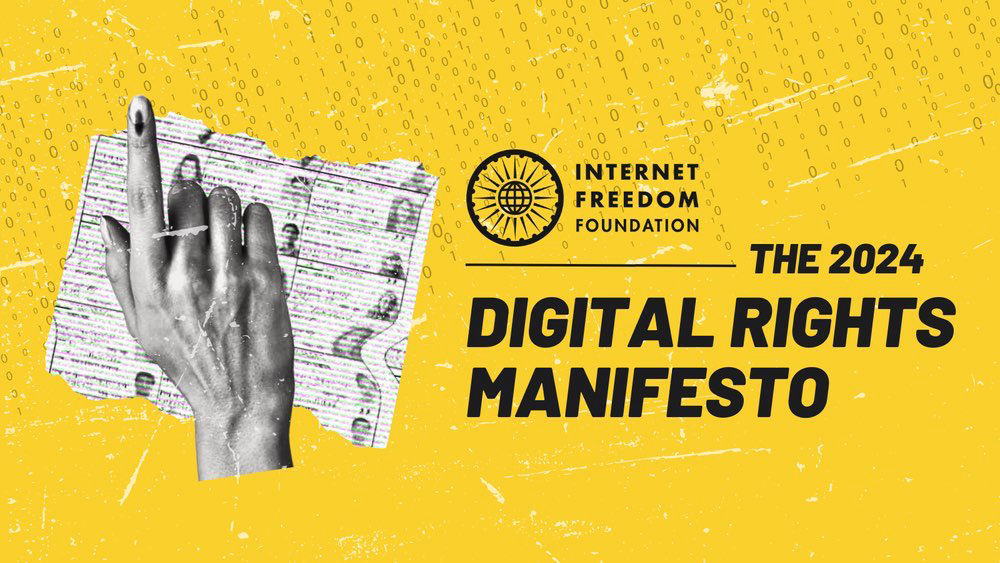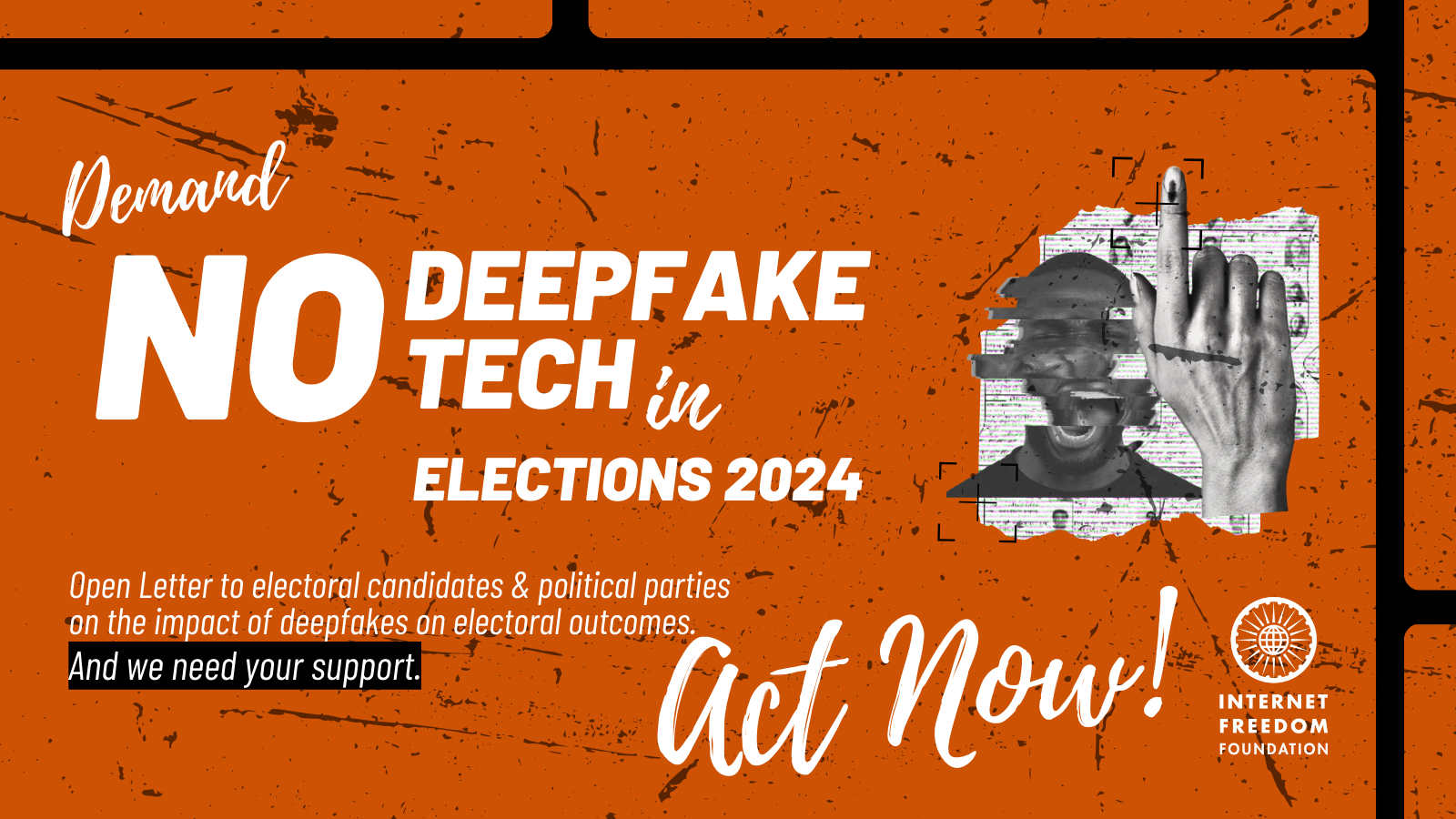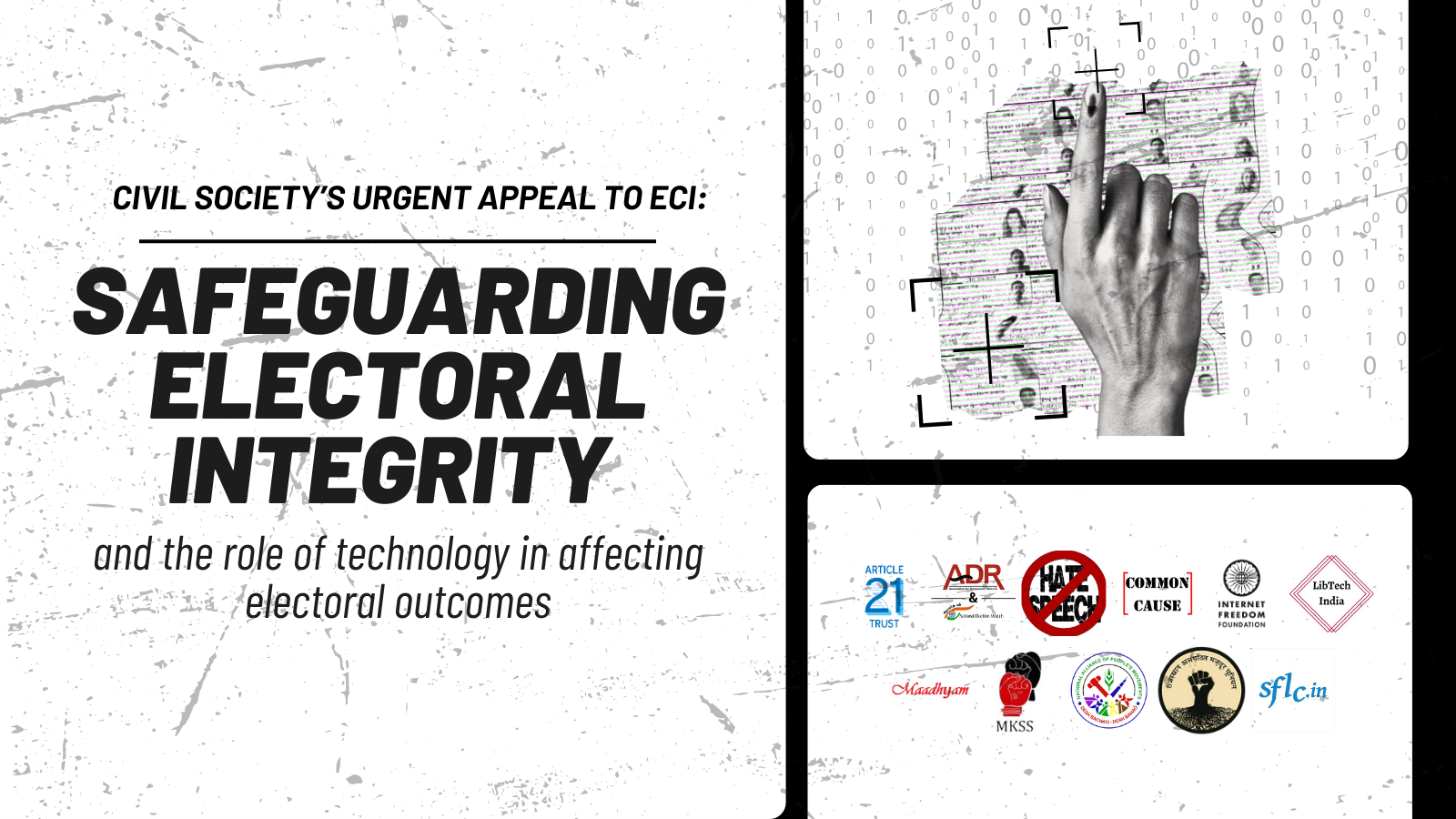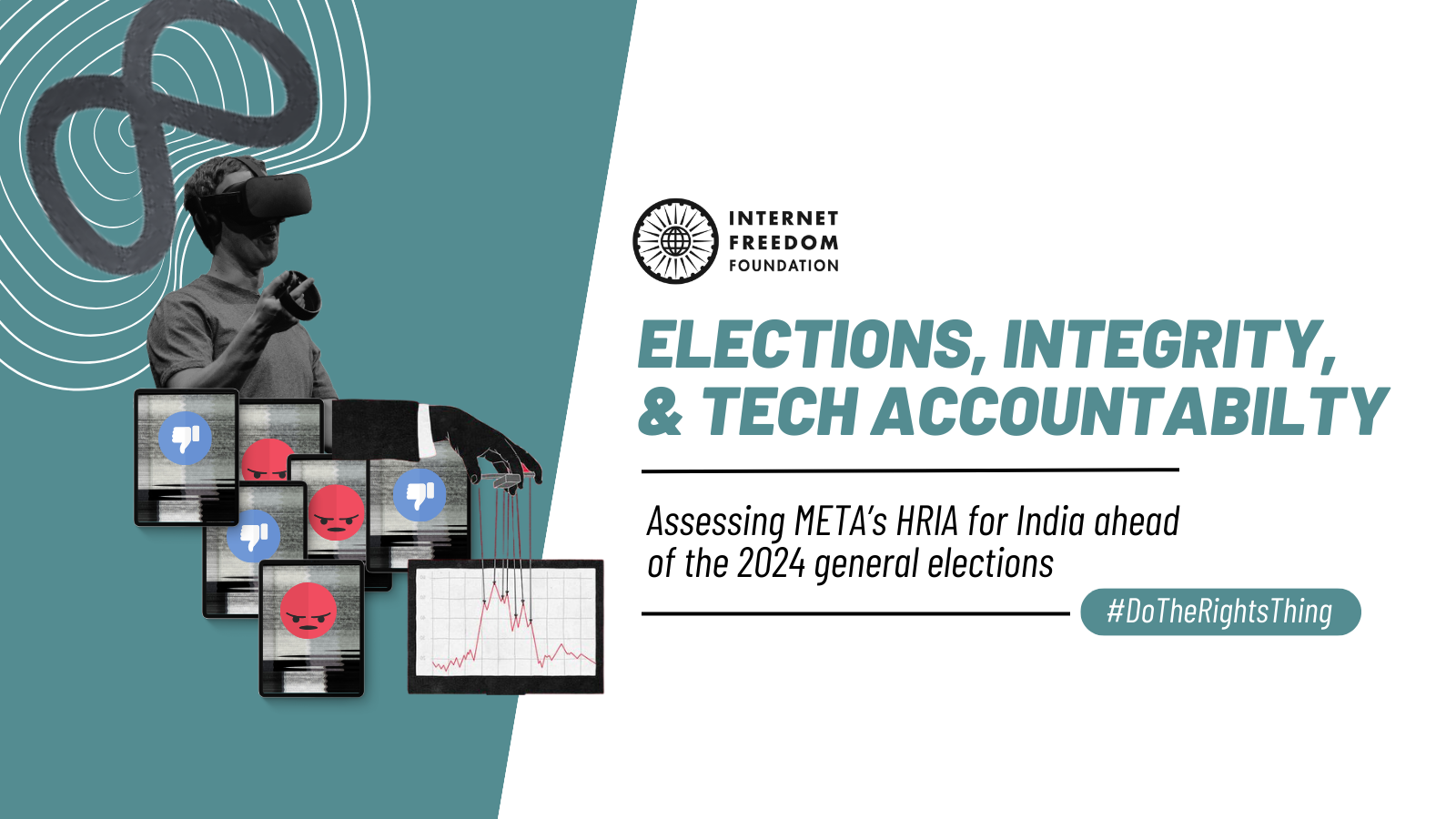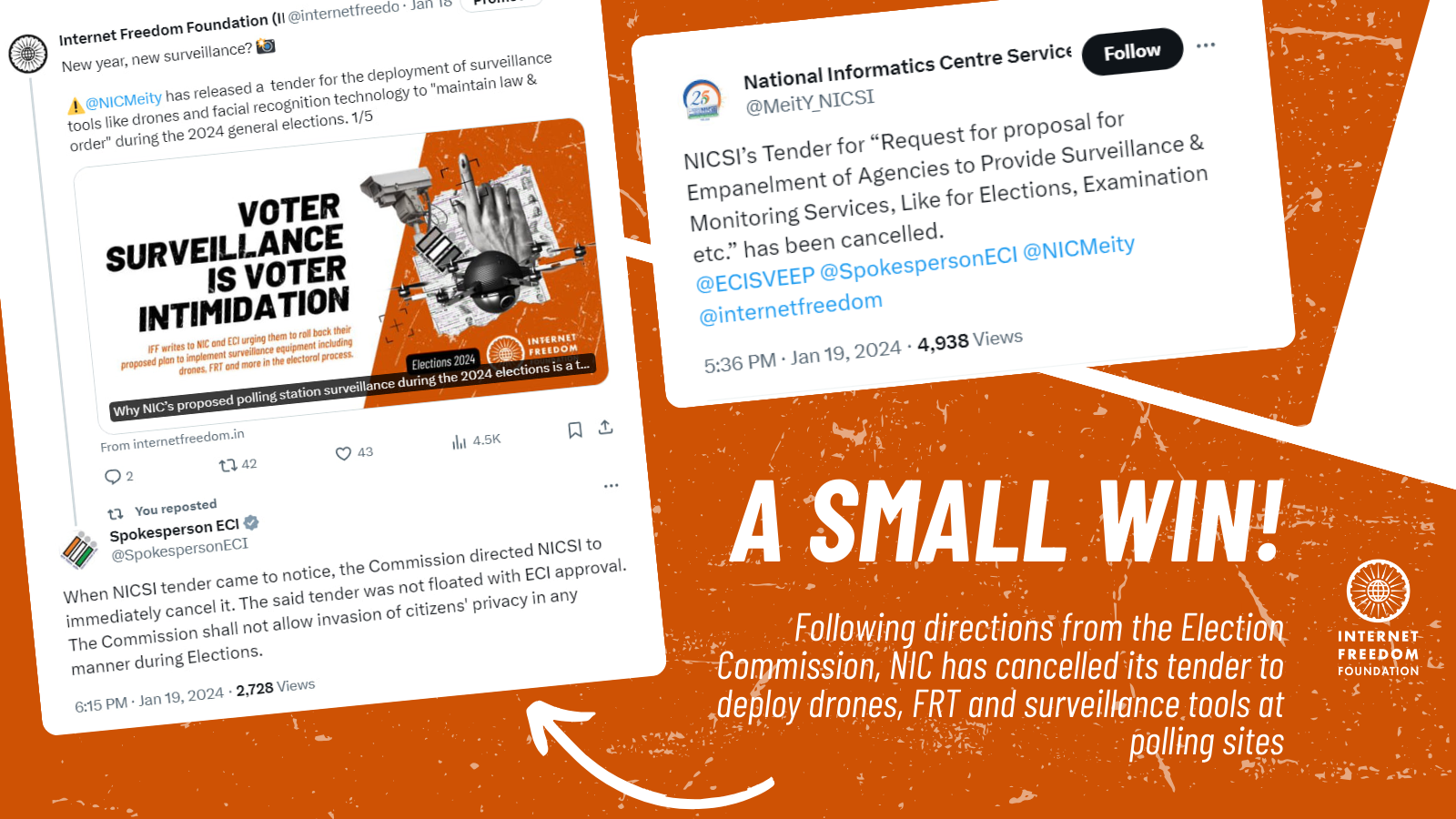Digital rights on the ballot
We drafted a seven-point agenda for political parties that puts rights at the forefront, demanding that governance initiatives preserve and advance digital rights in era of digitalisation. We presented these demands to all political parties (regional and union level) and electoral candidates, urging them to adopt them in their party manifestos for the 2024 general and state elections.
We support and advocate for protecting and expanding the fundamental human rights of Indians in their interaction with digital technologies, with a focus on principles of justice, liberty, equality, and fraternity enshrined in the Indian Constitution.
With growing digitisation and more Indians coming online, the human rights impact of digital technologies has become a core governance issue, which we will strive to prioritise through executive and legislative action.
We commit to applying systemic solutions to systemic problems such as cybersecurity threats and online harms, while preserving users’ security through the adoption of privacy-protecting technologies.
We will strive towards making the protection and advancement of digital rights of individuals and collectives a governance priority.
We will continue to support efforts for greater access to the internet and to digital technologies – access that is physical, educational, monetary, intersectional, and equitable.
We will strive to increase internet penetration in remote corners of the country, to secure the right of every Indian to communicate, send, and receive information and to bridge the digital divide.
We will ensure that no person is excluded from government services, benefits, or entitlements due to the adoption of e-governance services or digitisation, and that the delivery of welfare services are not impeded due to technical failures, internet suspensions, or inaccess.
We will seek to empower those from backgrounds and identities who can use technology for a better, more productive life across boundaries of religion, caste and gender.
The growing presence of Indians in online spaces reinforces the need to protect their freedom of speech and expression as well as their right to receive information online.
Reinterpretation or replacement of antiquated laws must not be employed as a means to suppress dissenting and vulnerable voices and to solidify disproportionate power with the Executive.
While an online attack on the freedoms and rights of others must be countered with effective measures, we will work to ensure that legitimate, constitutional rights are protected and promoted.
We commit to ensuring that neither the government nor the platforms become sole arbiters of online free speech, in the absence of judicial safeguards.
As an extension of our recognition of the right to meaningfully access the internet, we oppose the disproportionate, unreasoned, and non-transparent suspension of the internet.
India’s troublesome performance in globally renowned indexes measuring internet shutdowns and online speech censorship is a cause for alarm. We commit to safeguarding fundamental and human rights in online domains, preventing any authoritarian abuse of power.
